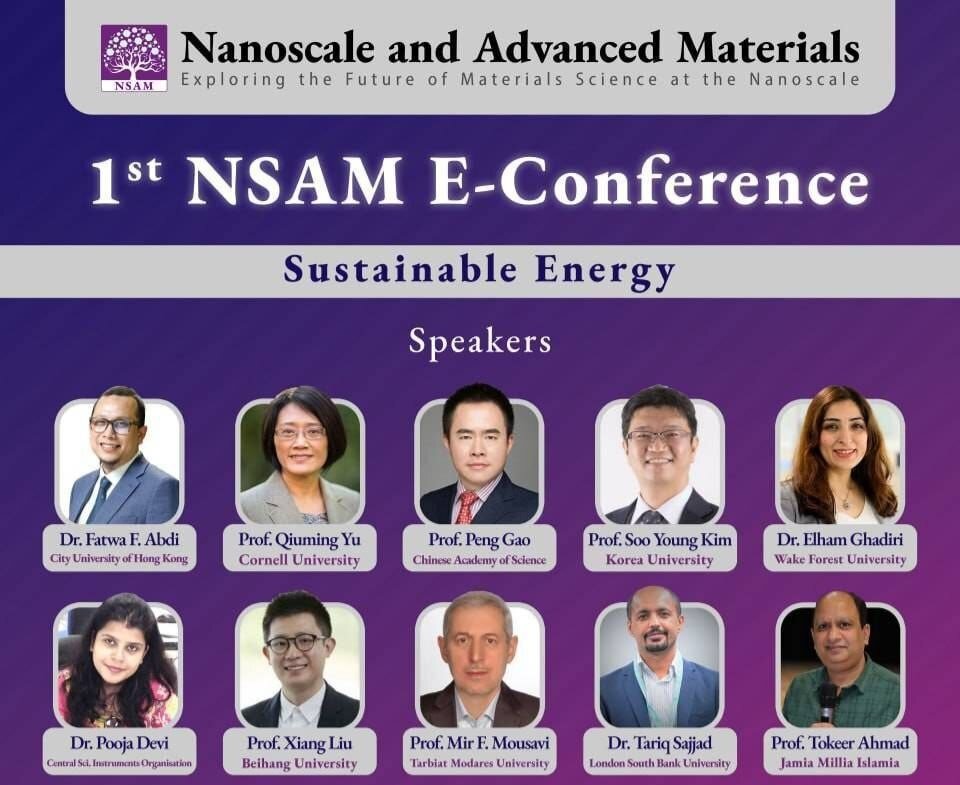Nanoscale, Advanced Materials E-Conference on Sustainable Energy to be held

TEHRAN – Tehran will hold the first Nanoscale, Advanced Materials (NASM) E-Conference on Sustainable Energy on September 18.
The event will bring together noted researchers from renowned universities worldwide. Unlike other conferences, submitting articles is not needed as the main focus will be on sharing knowledge and expertise.
The international scientific event will serve as a great opportunity for students, professors, and experts to benefit from the latest achievements and innovative ideas of the most distinguished researchers on clean energy.
The conference will be centered around key technological challenges such as hydrogen manufacturing as a future green fuel, new generation of energy storage devices, integrated photonic and catalytic energy storage, electrochemical conversion of carbon dioxide, conventional and inverted solar cells, as well as examining the application of multi-metal chalcogenides in the energy sector.
The conference will be co-hosted by Prof. Malek Naderi, the director of the Graphene and Advanced Materials Laboratory (GAMLab) at Amirkabir University of Technology, and Prof. Mojtaba Abdi Jalebi, the director of the Functional Materials and Energy Device (FMED) Laboratory at University College London (UCL).
Dr. Fatwa E. Abdi, City University of Hong Kong, Professor Qiuming Yu, Cornell University, Prof. Peng Gao (Chinese Academy of Sciences), Prof. Mir F.Mousavi (Tarbiat Modares University), and Prof. Soo Young Kim (Korea University) are among the speakers from prestigious institutions.
Clean energy ensures safer, better world for all
Alternative sources of energy that are clean, accessible, and reliable will contribute to addressing climate change, mitigating greenhouse gas emissions, and empowering vulnerable communities worldwide.
Provided by the sun, wind, water, waste, and heat from the Earth, renewable energy sources are abundant and emit little to no greenhouse gases or pollutants into the air.
They also benefit communities lacking access to reliable power sources. For populations without clean energy access, the lack of reliable power hinders education, healthcare, and economic opportunities.
Many of the developing regions still rely heavily on polluting fossil fuels for their daily life. If current trends continue, by 2030, around 1.8 billion people will still use unsafe, unhealthy, and inefficient cooking systems, such as burning wood.
The world needs to reduce dependence on fossil fuels by investing in clean energy, which is affordable and sustainable.
Hence, in 2023, the International Day of Clean Energy on January 26 was declared by the General Assembly as a call to raise awareness and mobilize action for a just and inclusive transition to clean energy for the benefit of people and the planet.
The day highlights the key role of clean energy in promoting sustainable development and mitigating climate change effects.
MT/MG
Leave a Comment